Year 4 Number and Place Value Worksheets
1000 More 1000 Less (A)
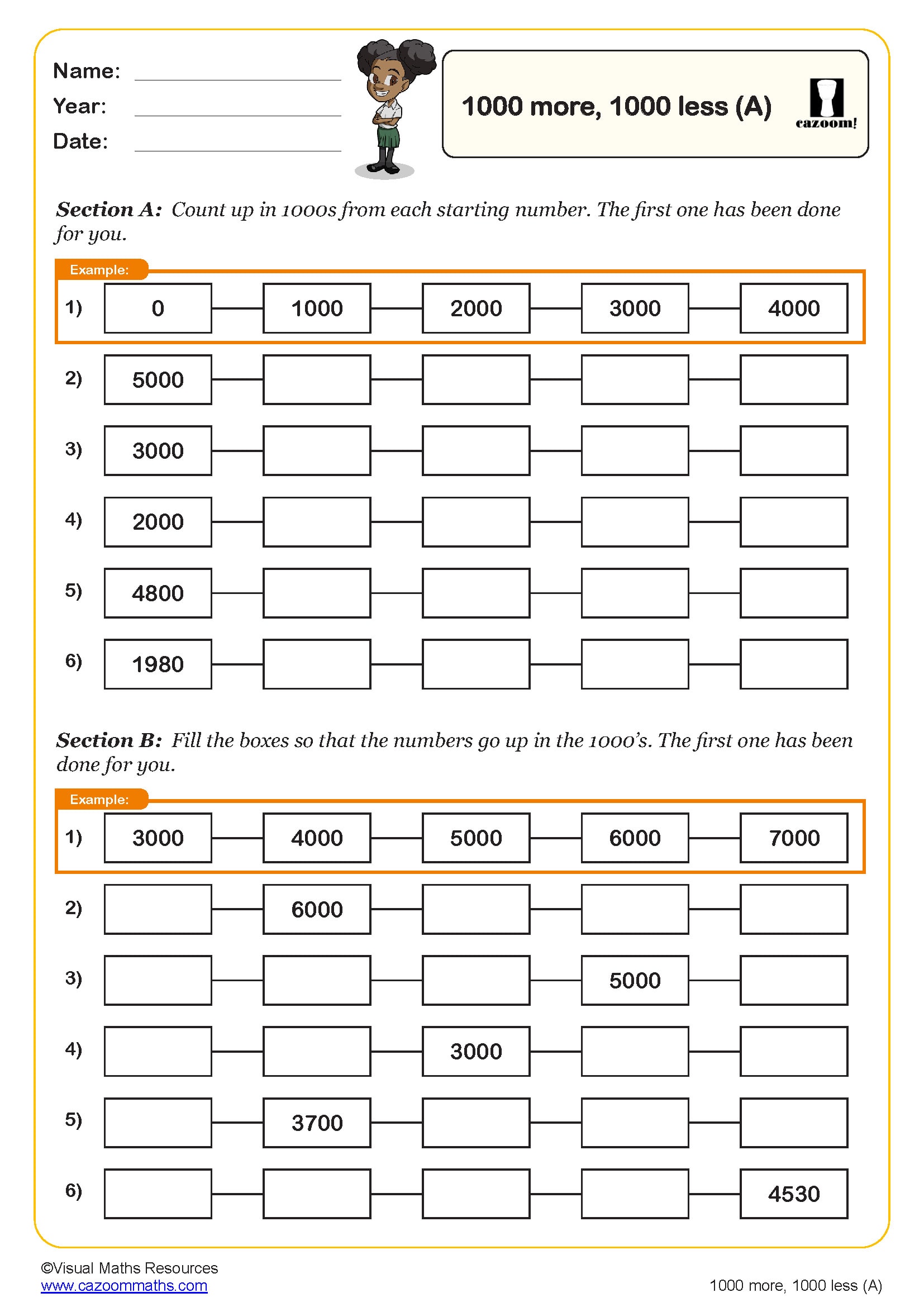
1000 More 1000 Less (B)
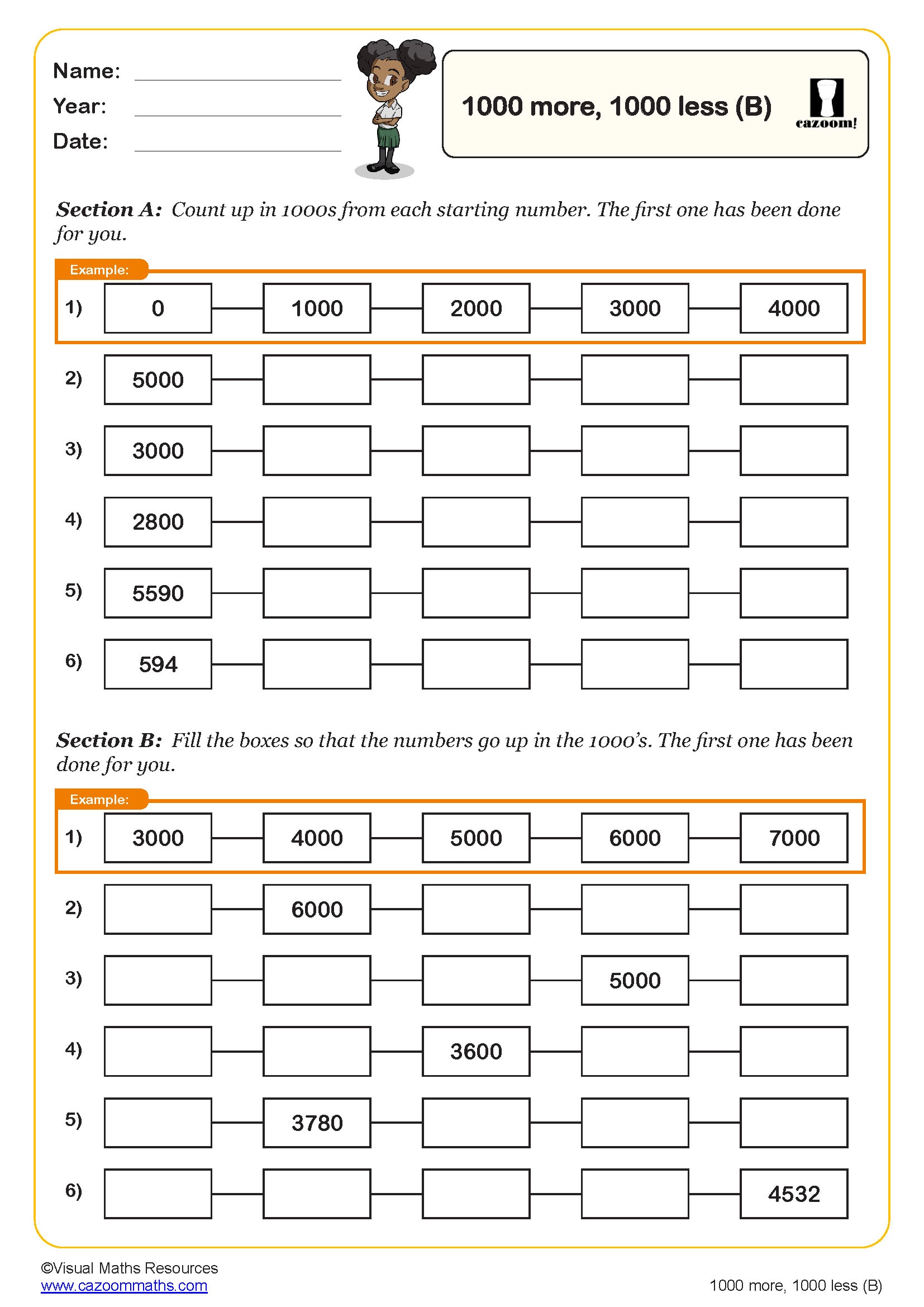
1000 More 1000 Less (C)
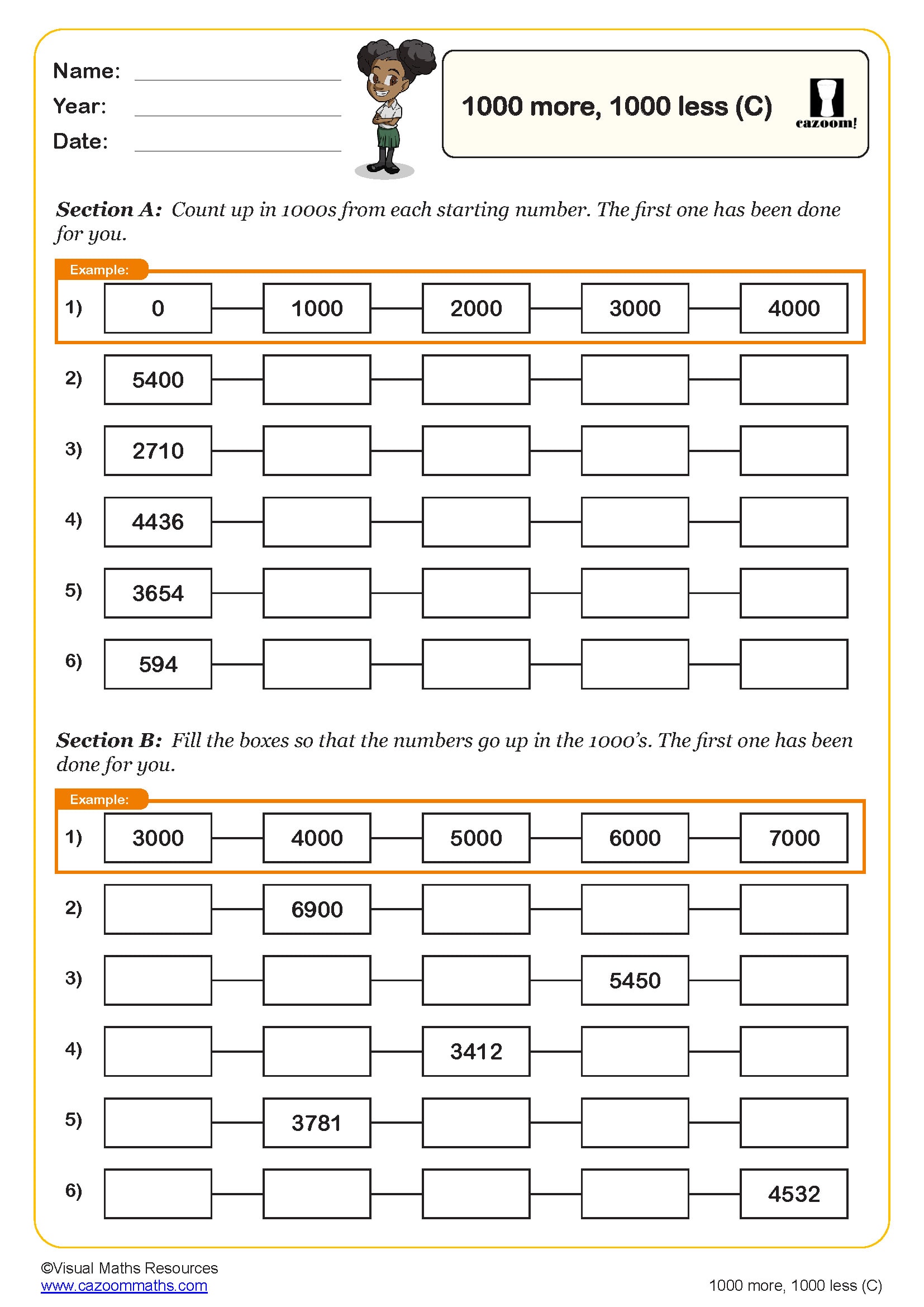
Compare and Order Numbers to 10,000
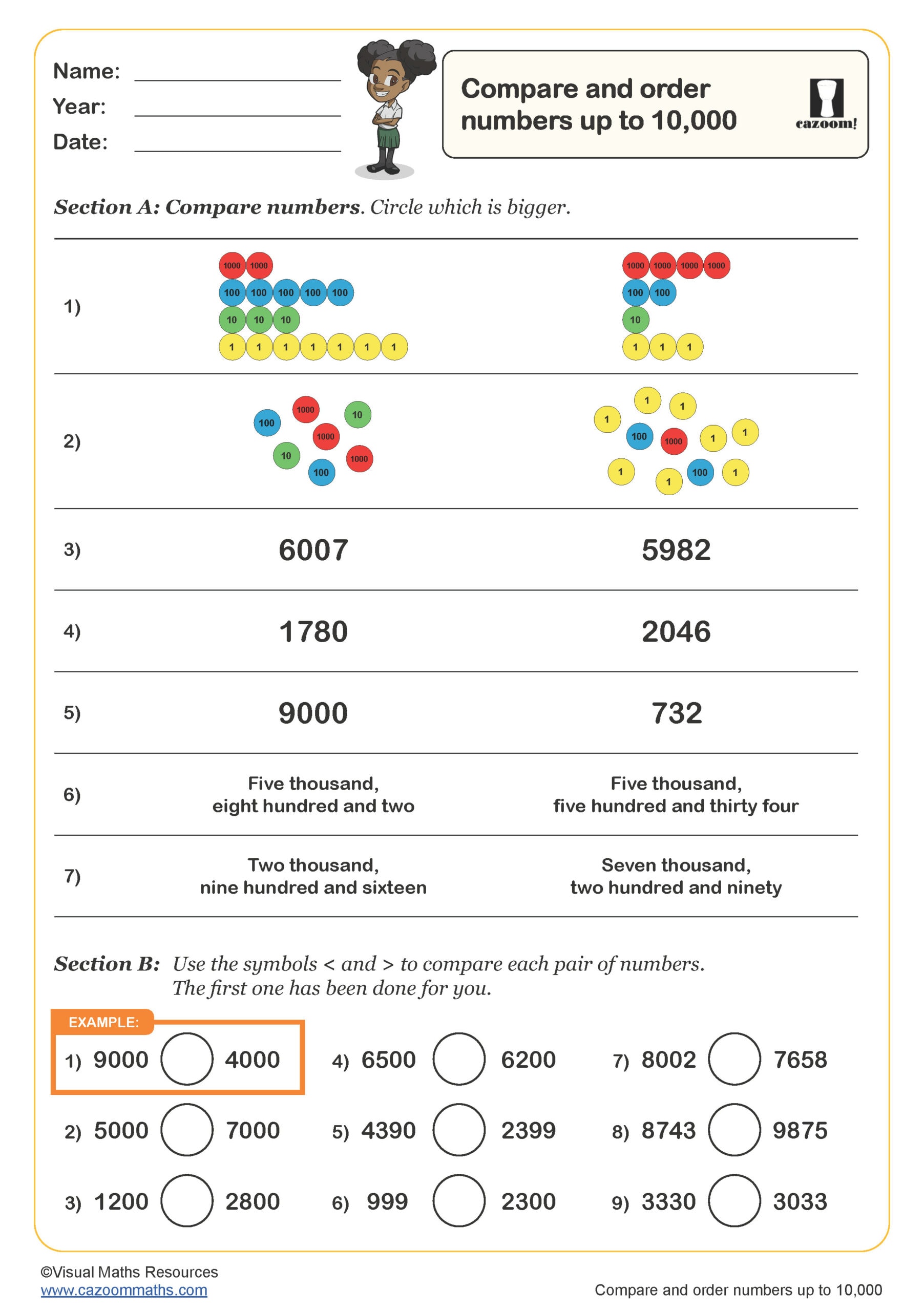
Compare and Order Positive and Negative Numbers
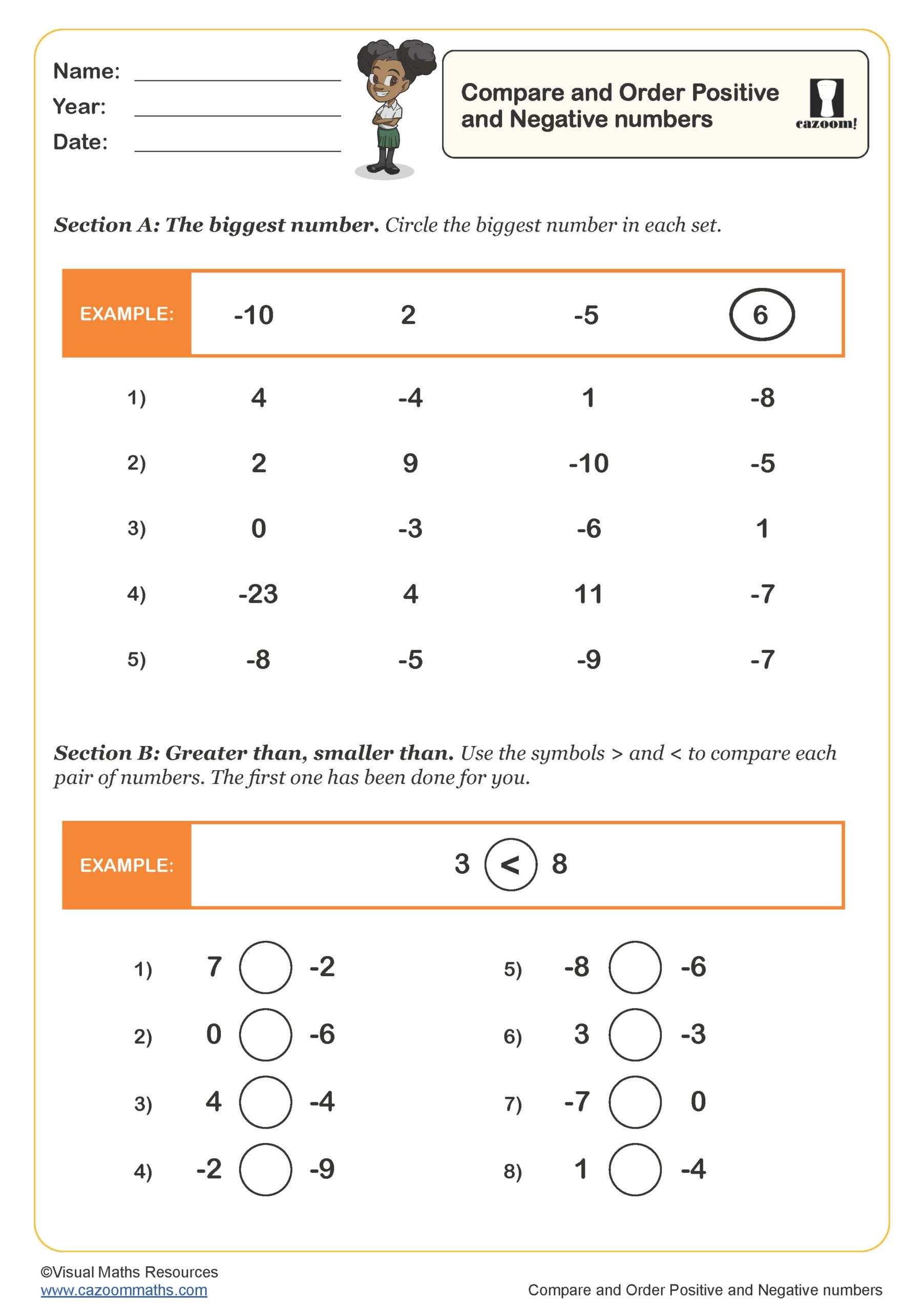
Decimal Place Value - Tenths and Hundredths
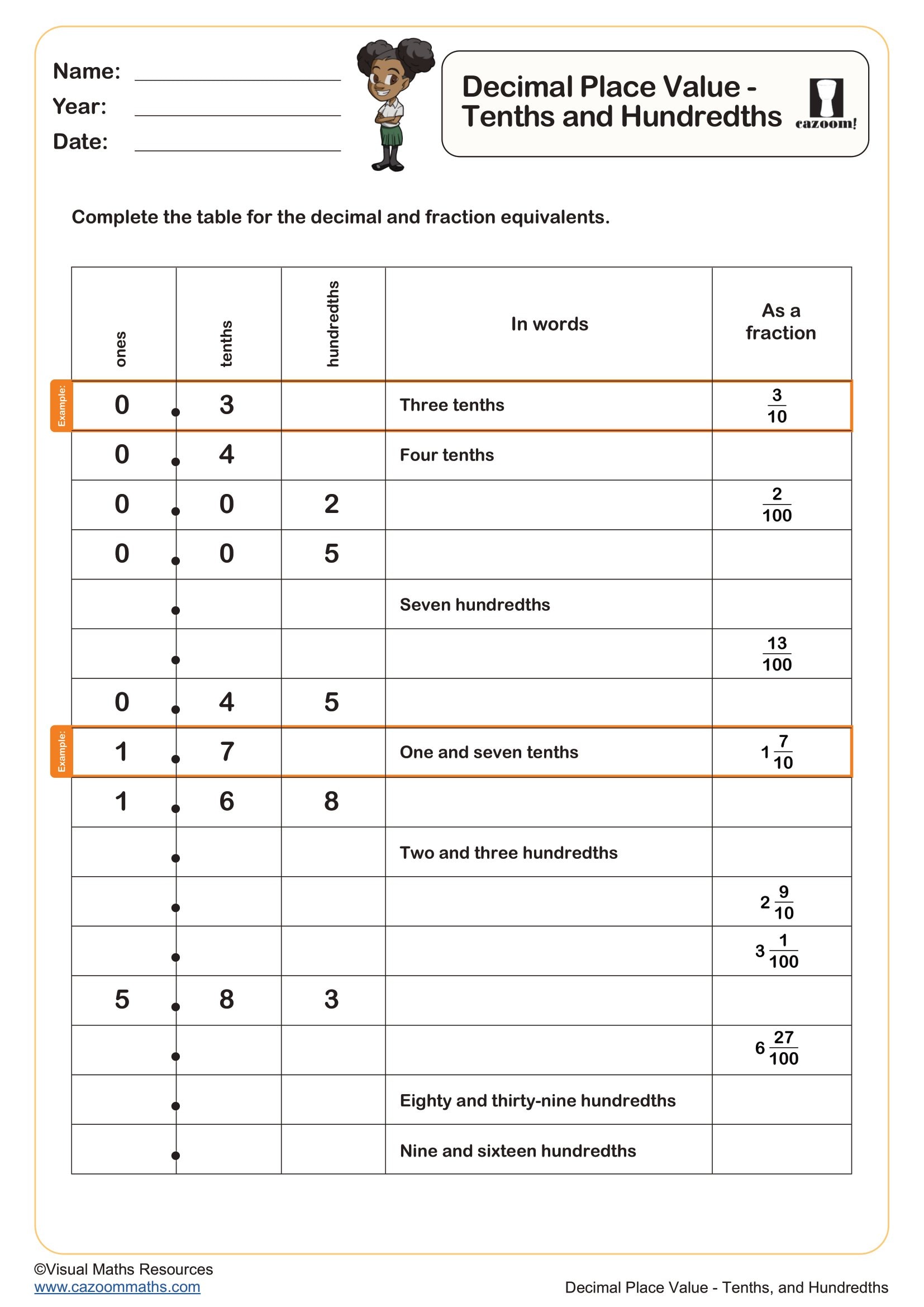
Divide 1 and 2 Digit Numbers by 10
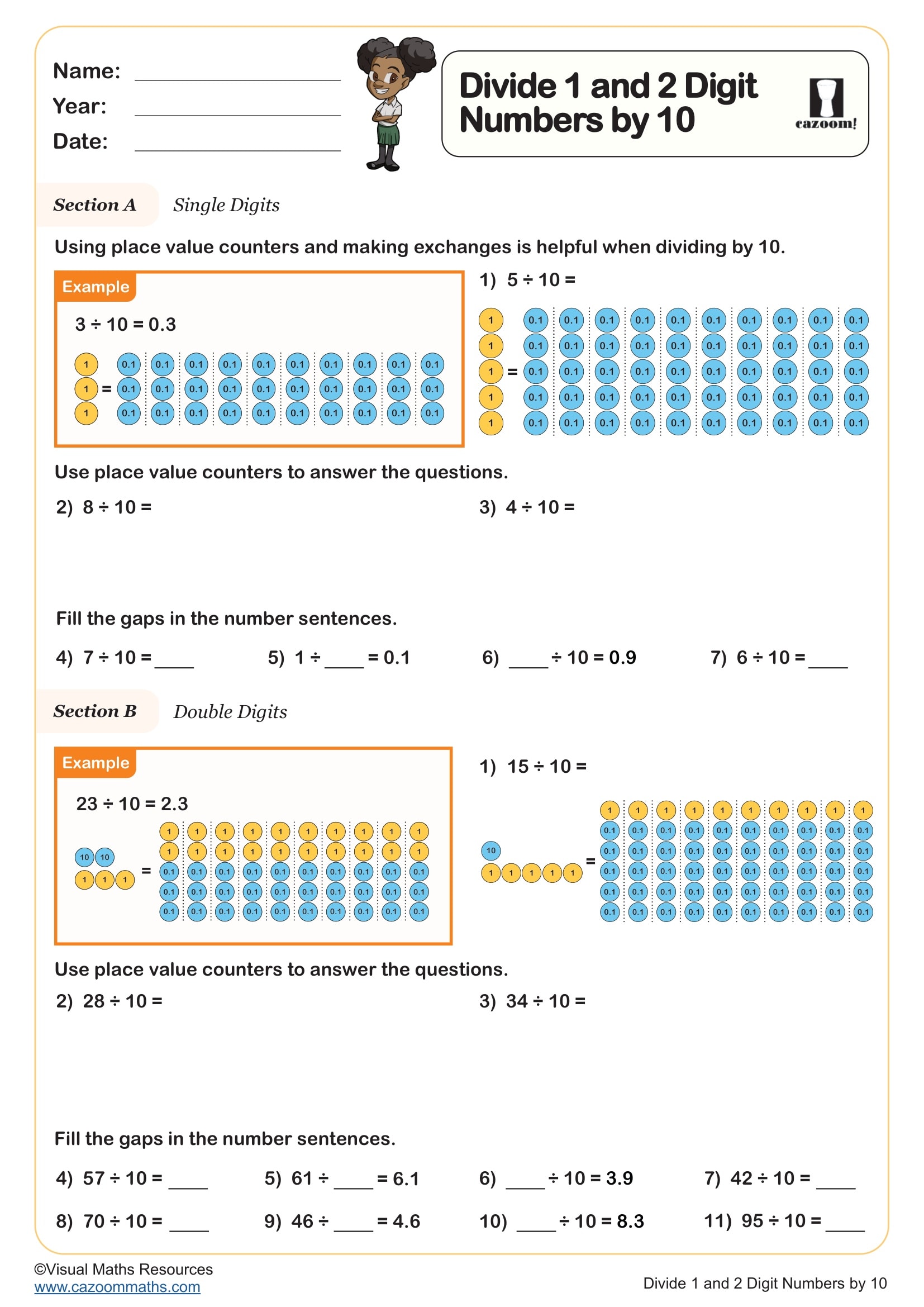
Divide 1 and 2 Digit Numbers by 100
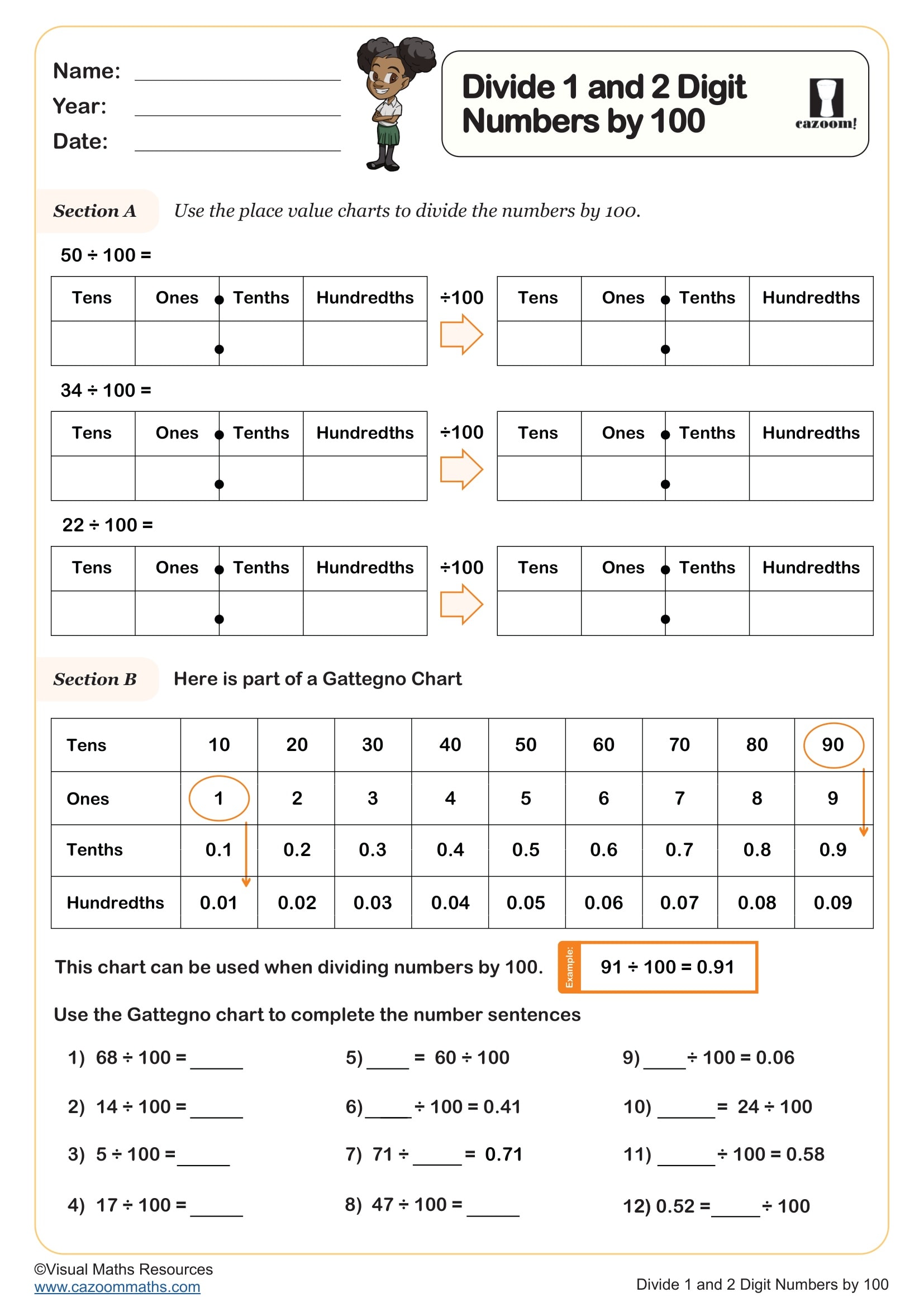
Estimating Shopping Bills
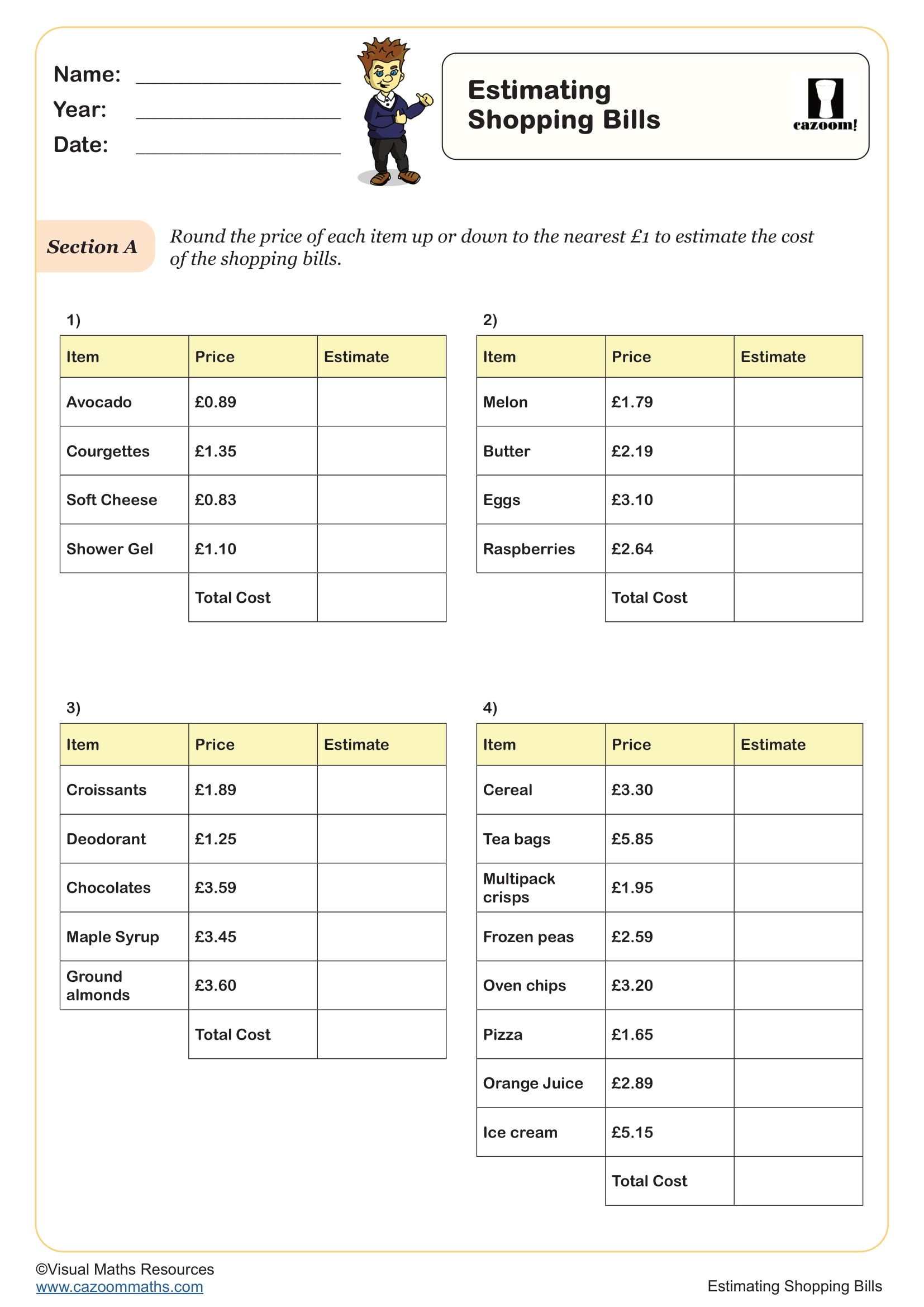
Negative Numbers
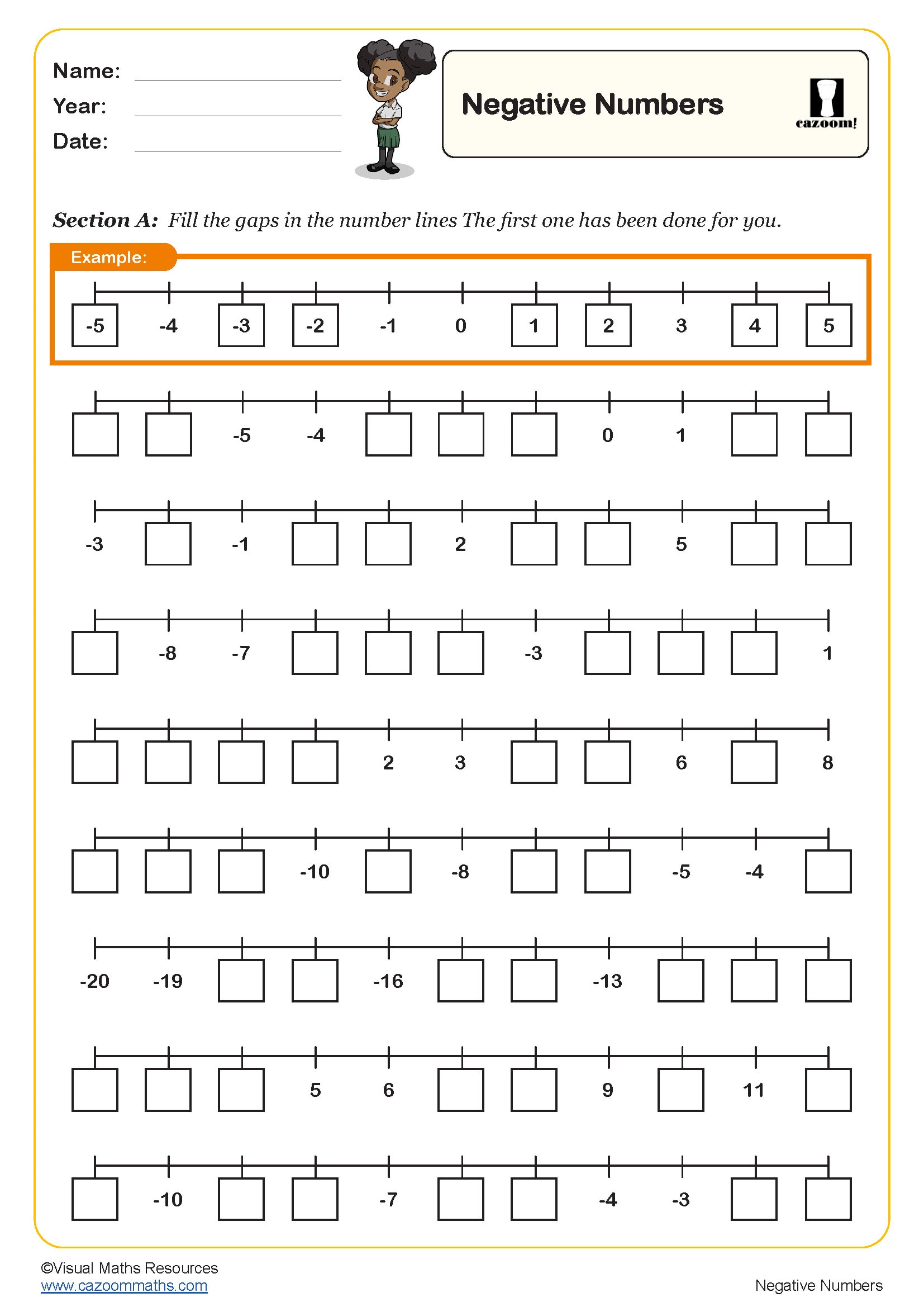
Place Value up to 10,000 (A)
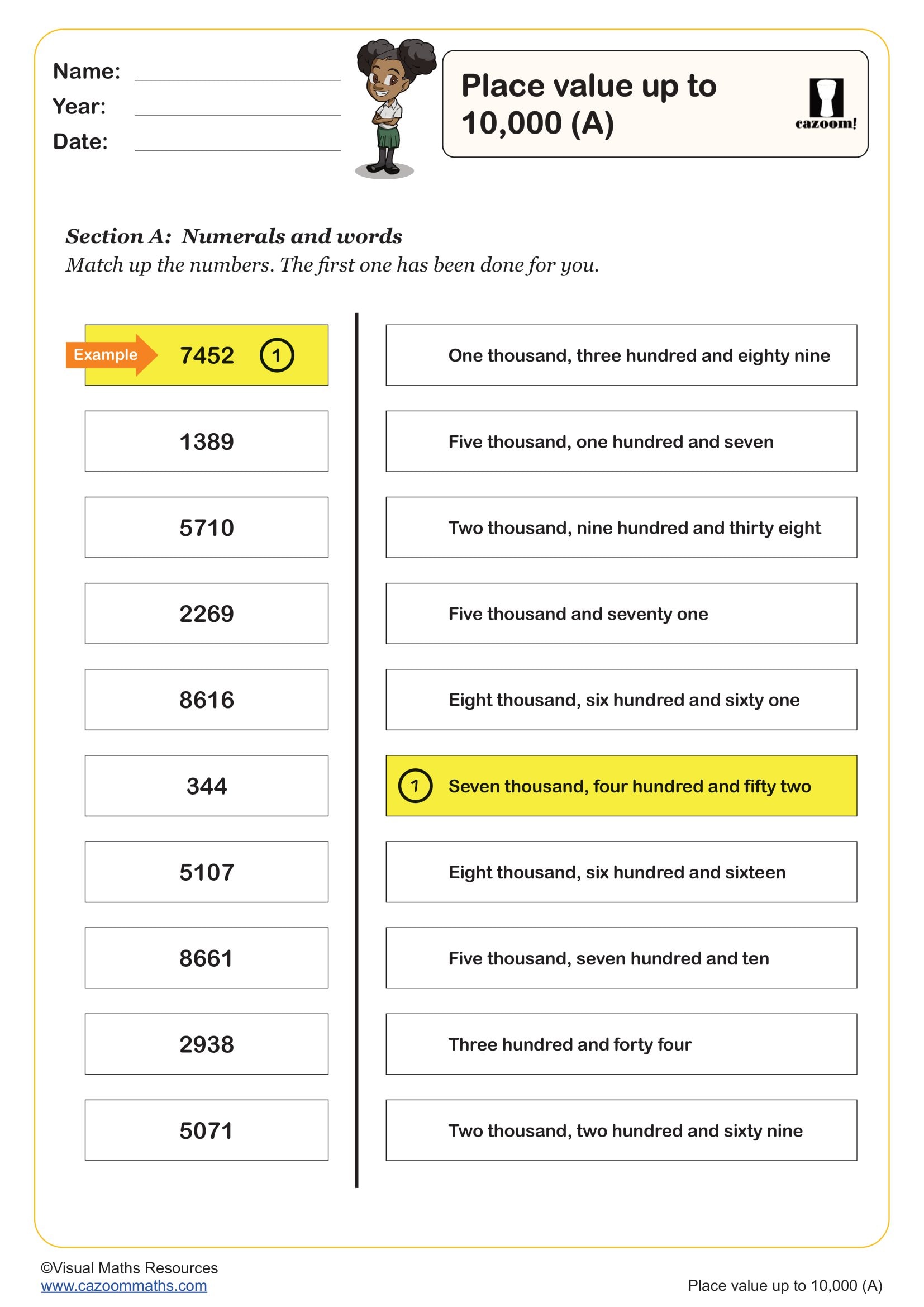
Place Value up to 10,000 (B)
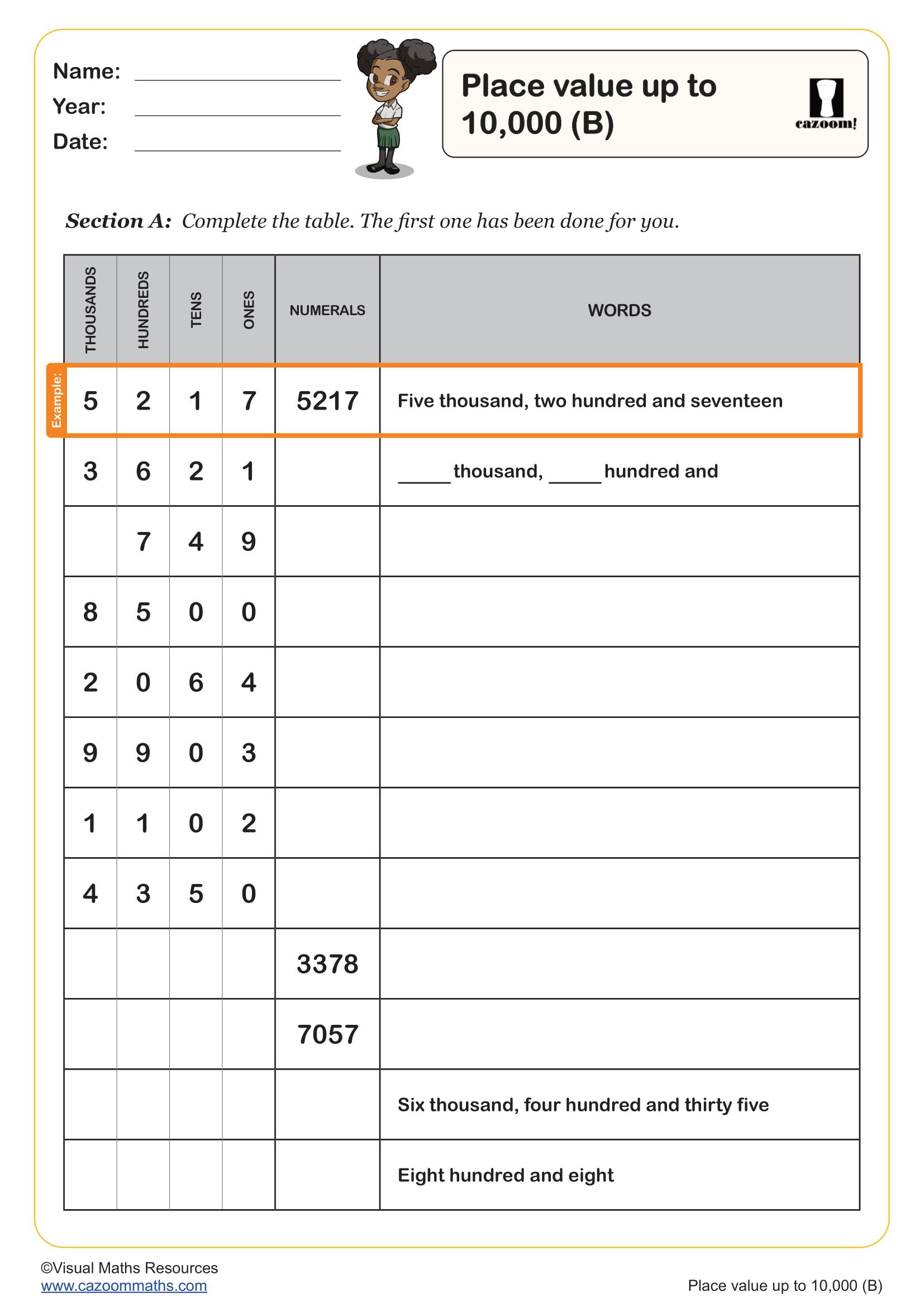
Place Value up to 10,000 (C)

Roman Numerals (B)
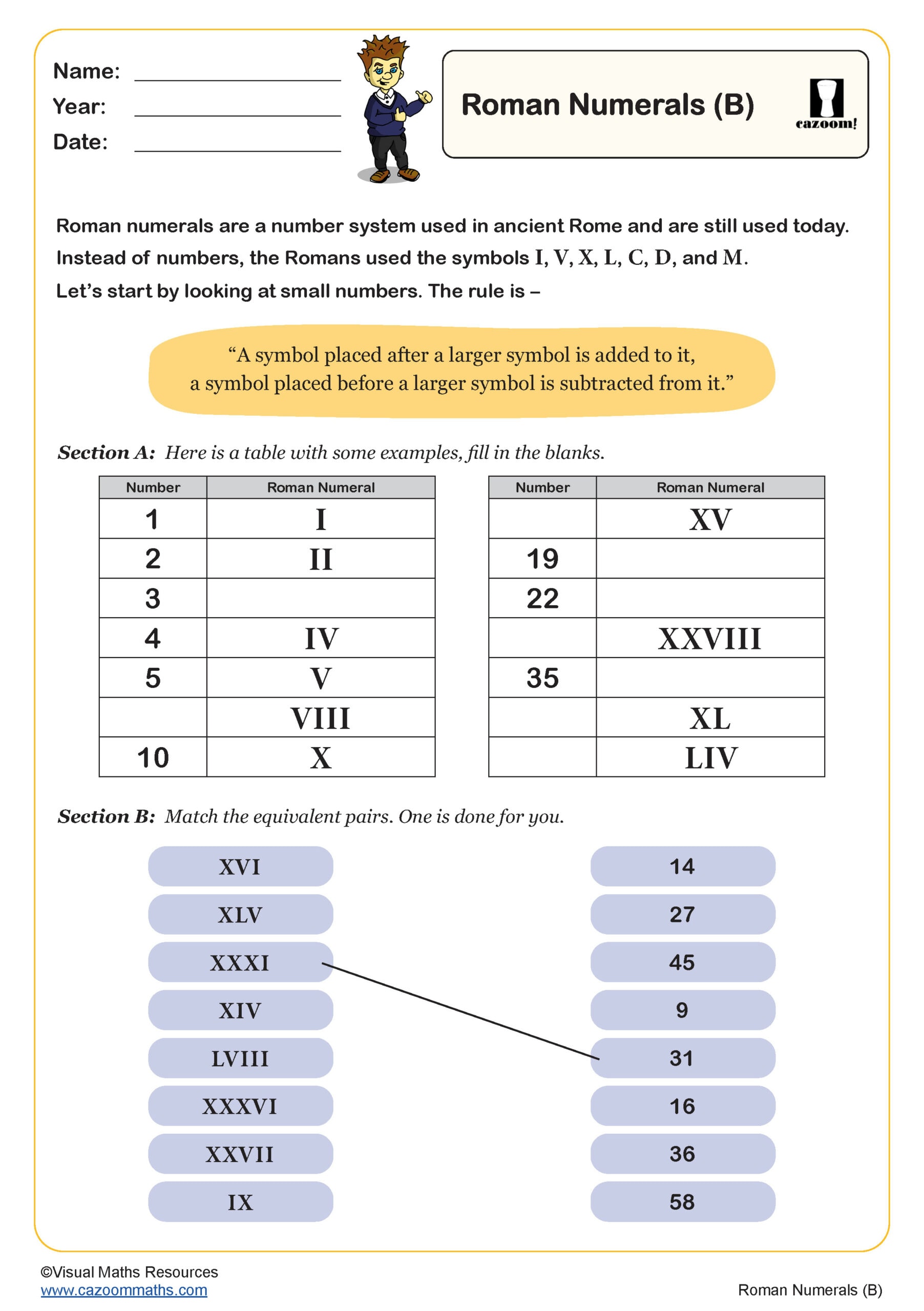
Roman Numerals (C)
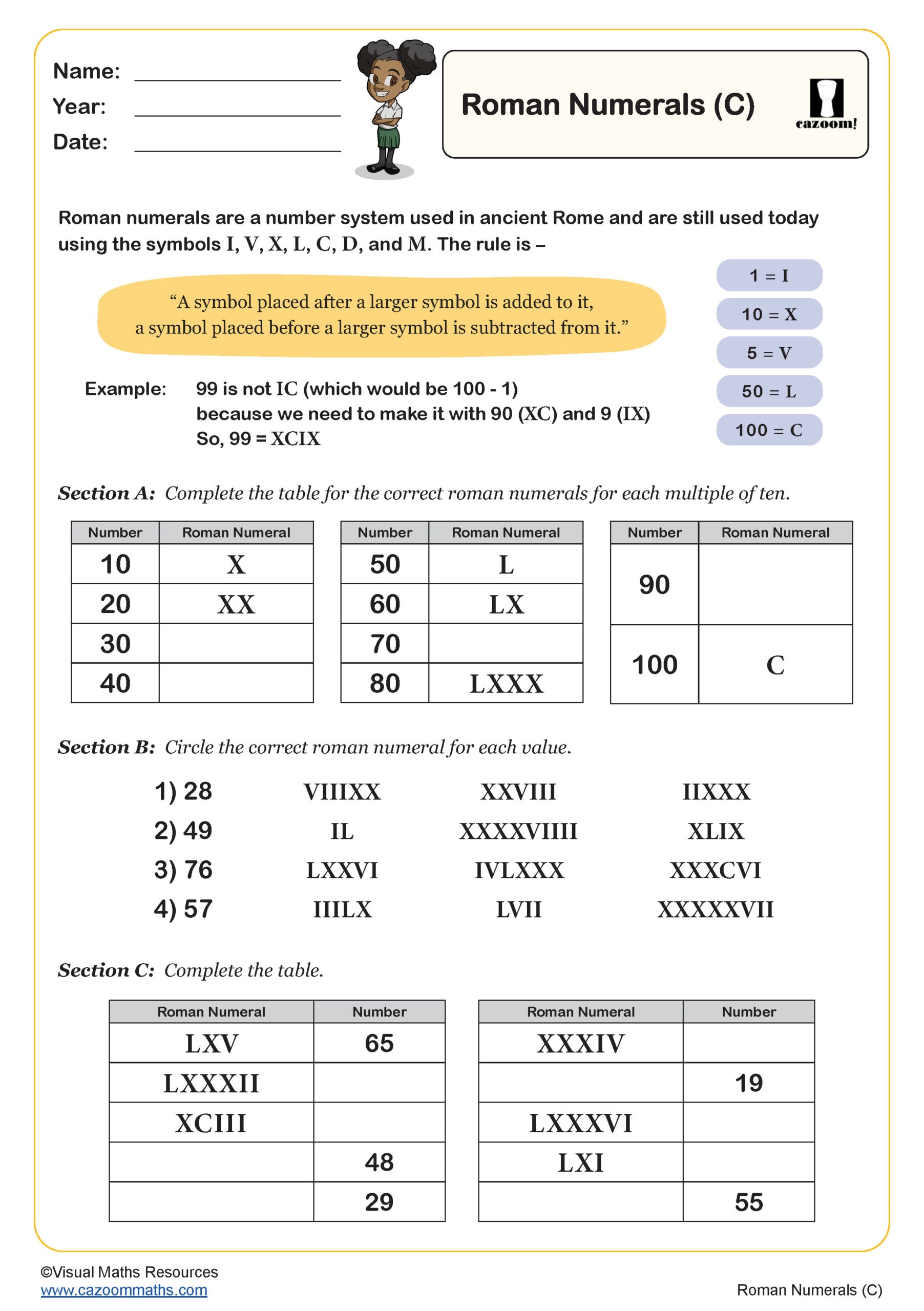
Round to the Nearest 10, 100 or 1,000
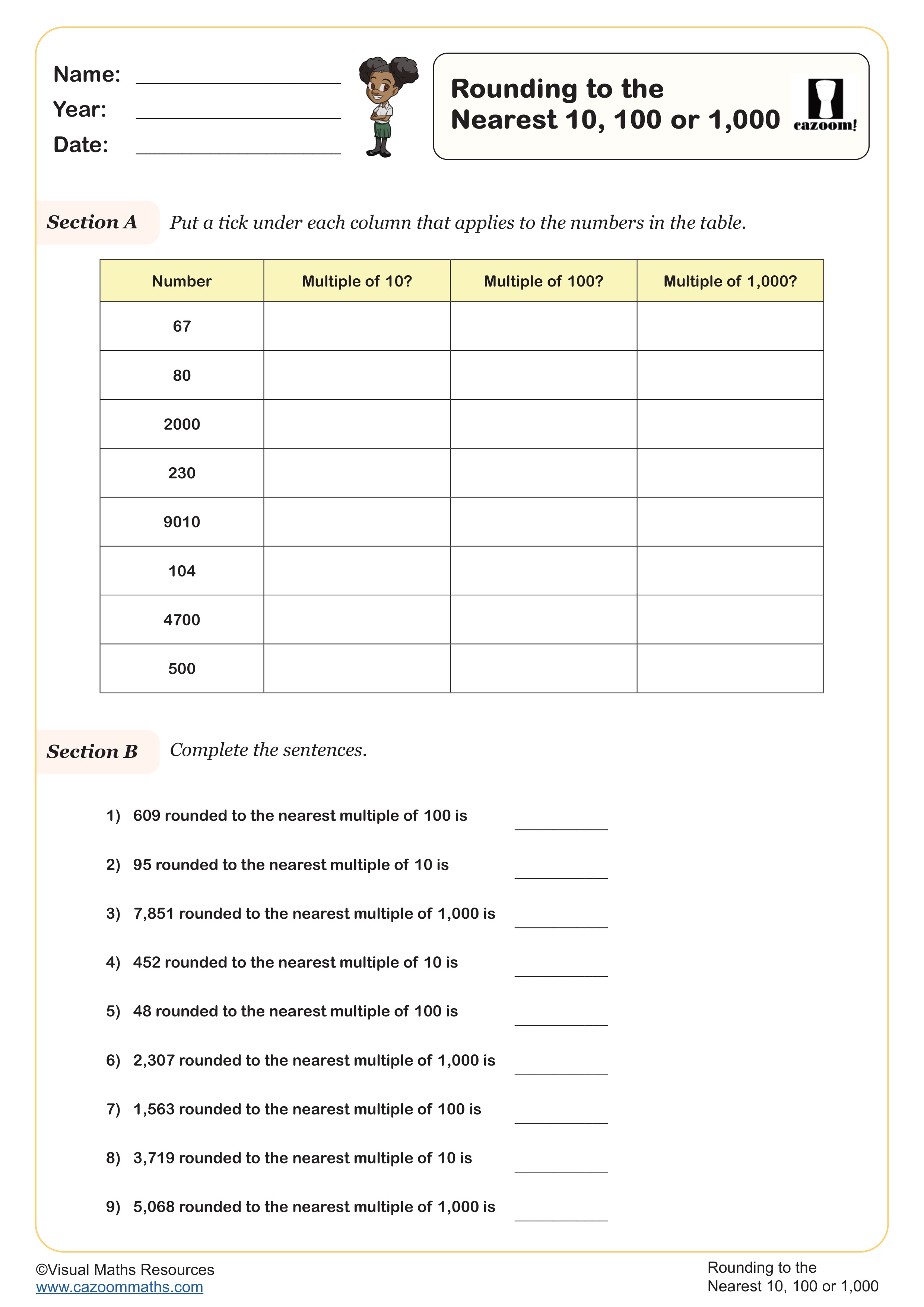
Rounding Charts
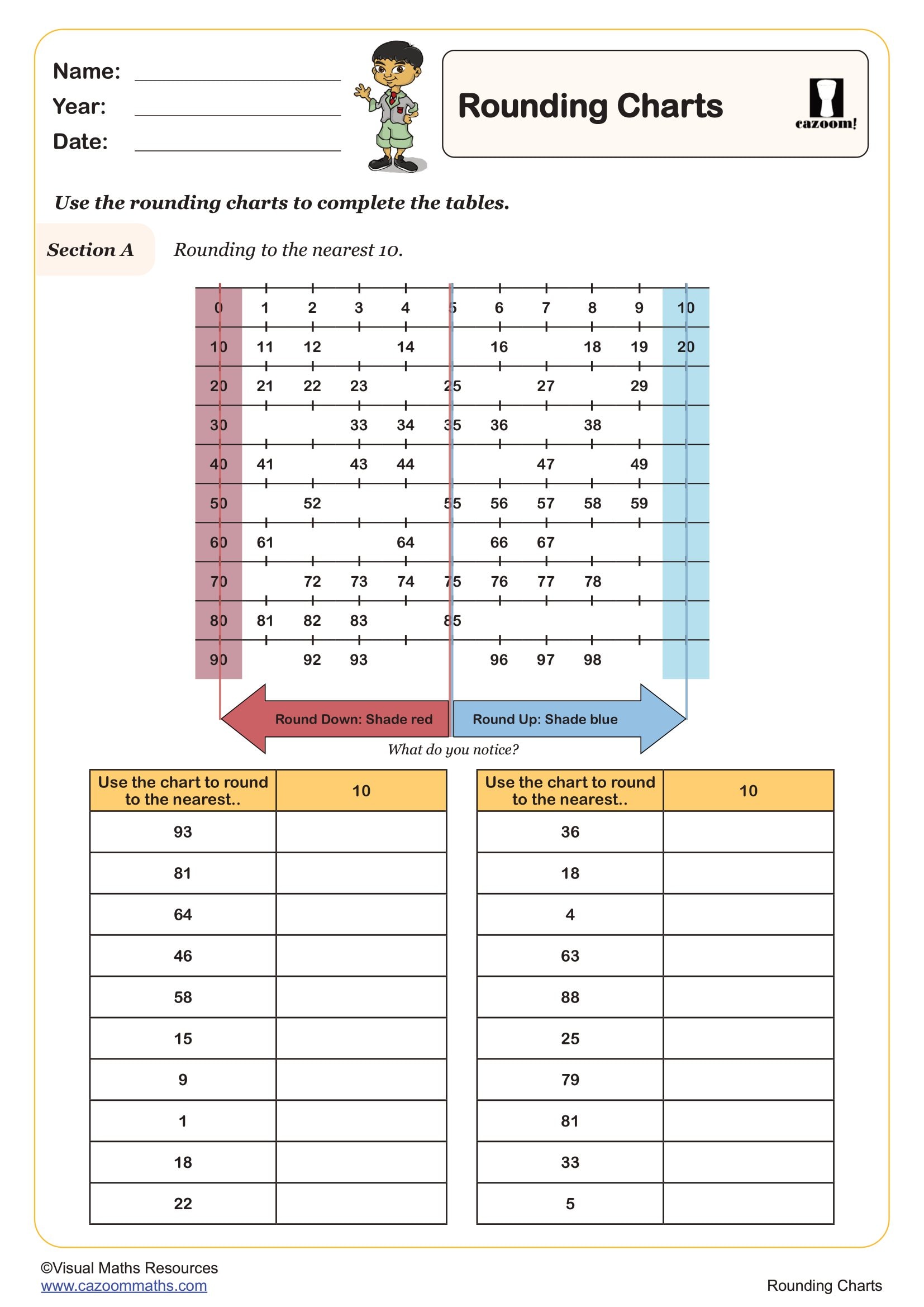
Rounding Numbers to the Nearest 10 Using Number Lines (A)
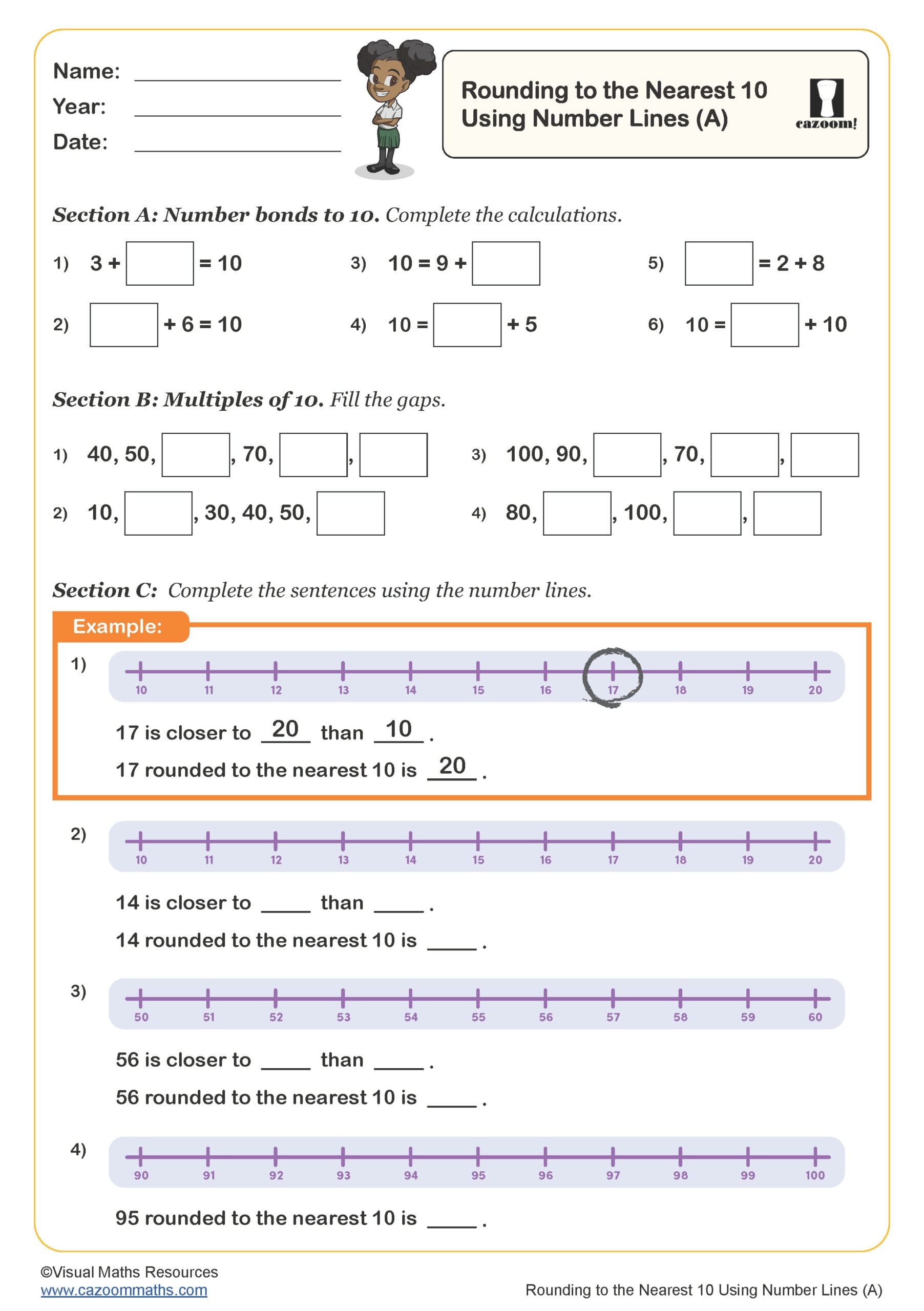
Rounding Numbers to the Nearest 10 Using Number Lines (B)
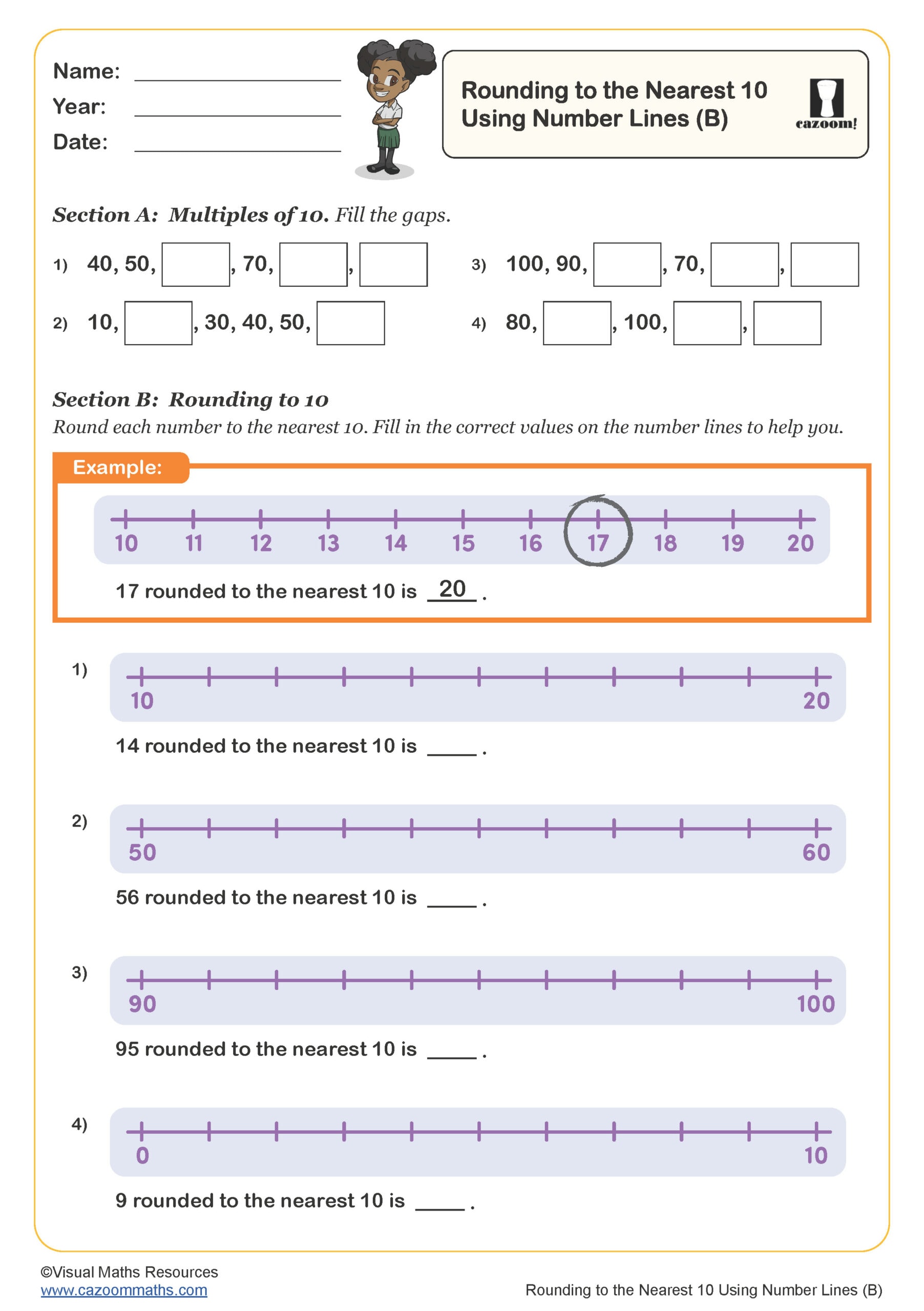
Rounding Numbers to the Nearest 10 Using Number Lines (C)
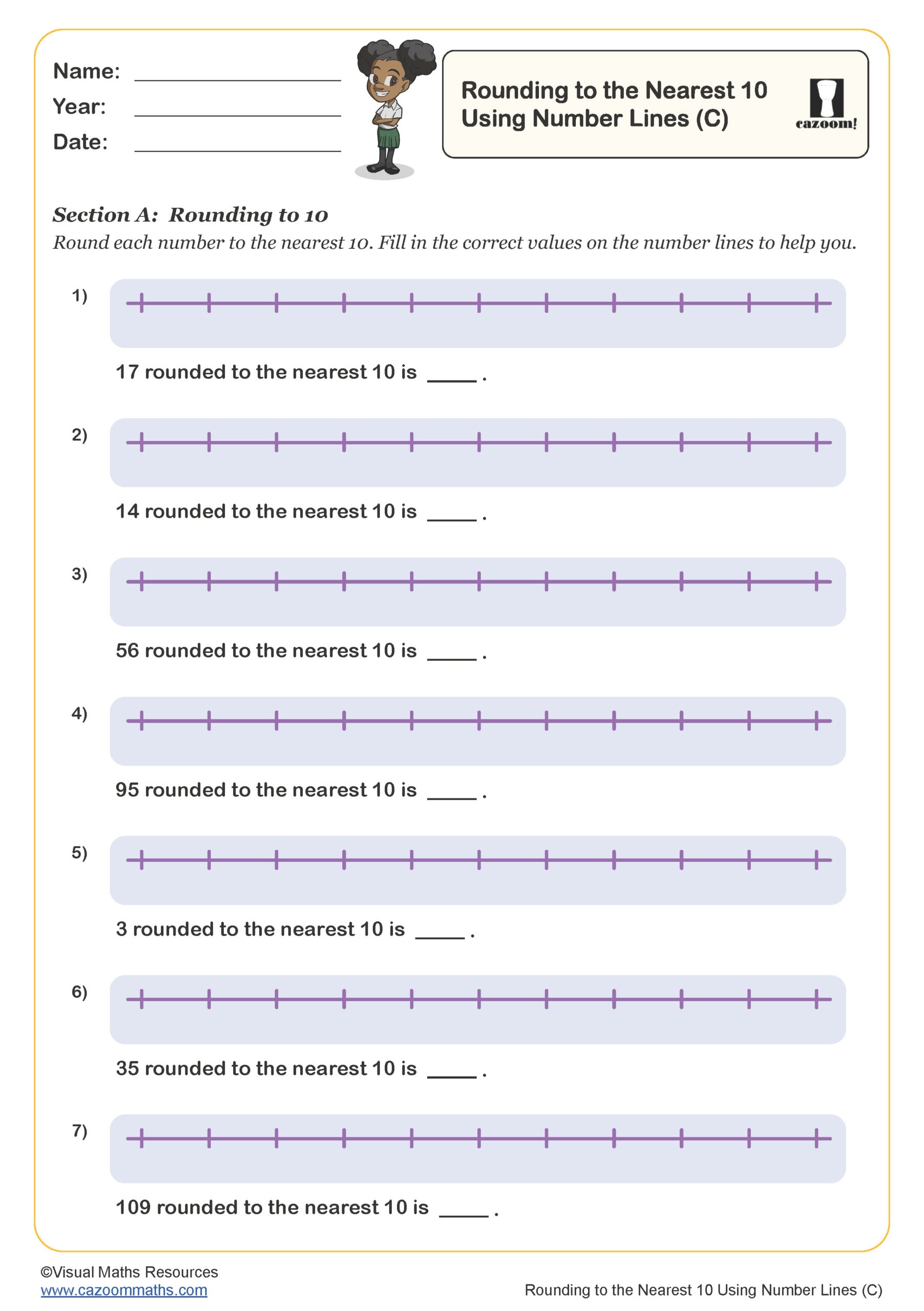
Rounding Numbers to the Nearest 100 Using Number Lines (A)
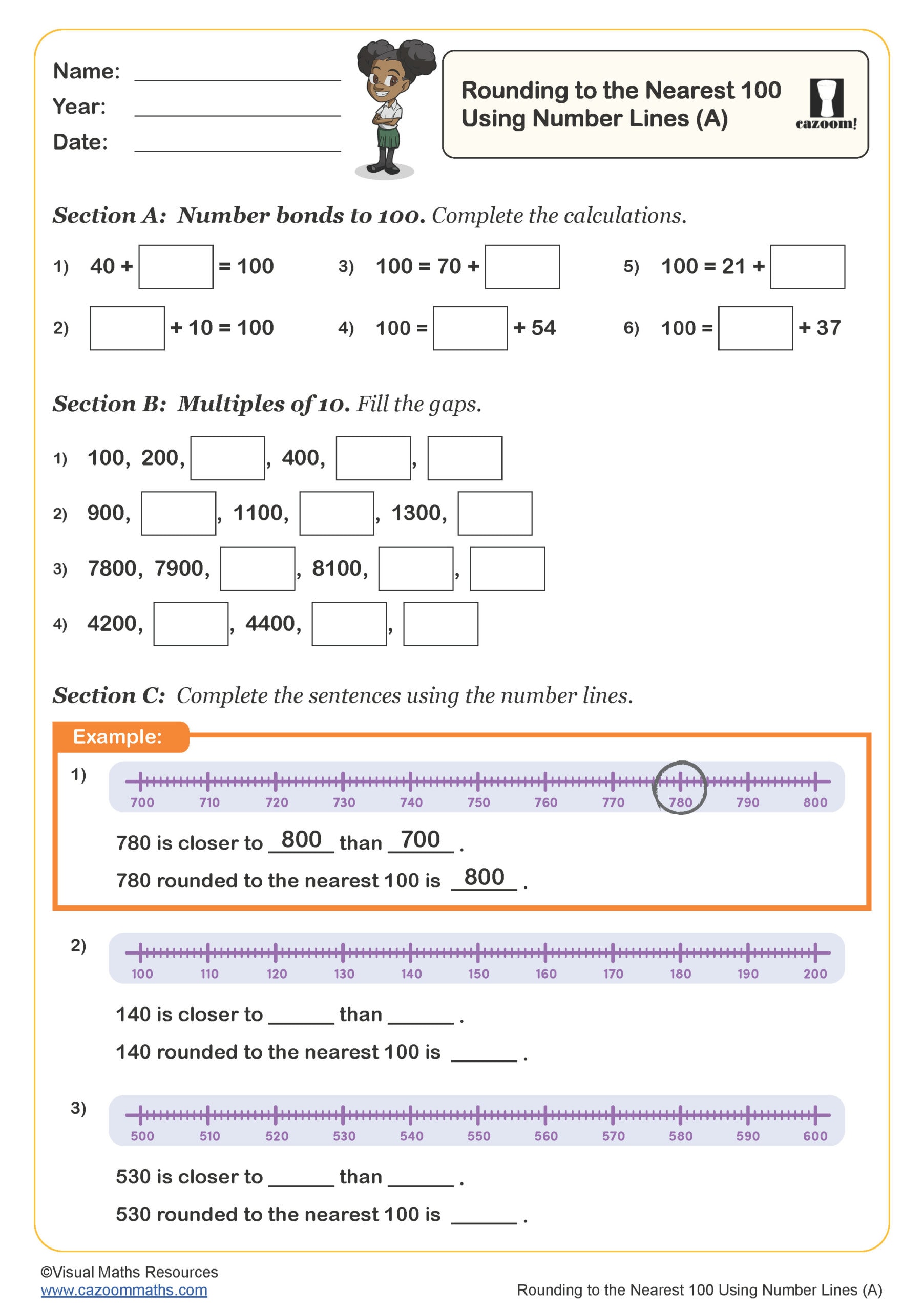
Rounding Numbers to the Nearest 100 Using Number Lines (B)
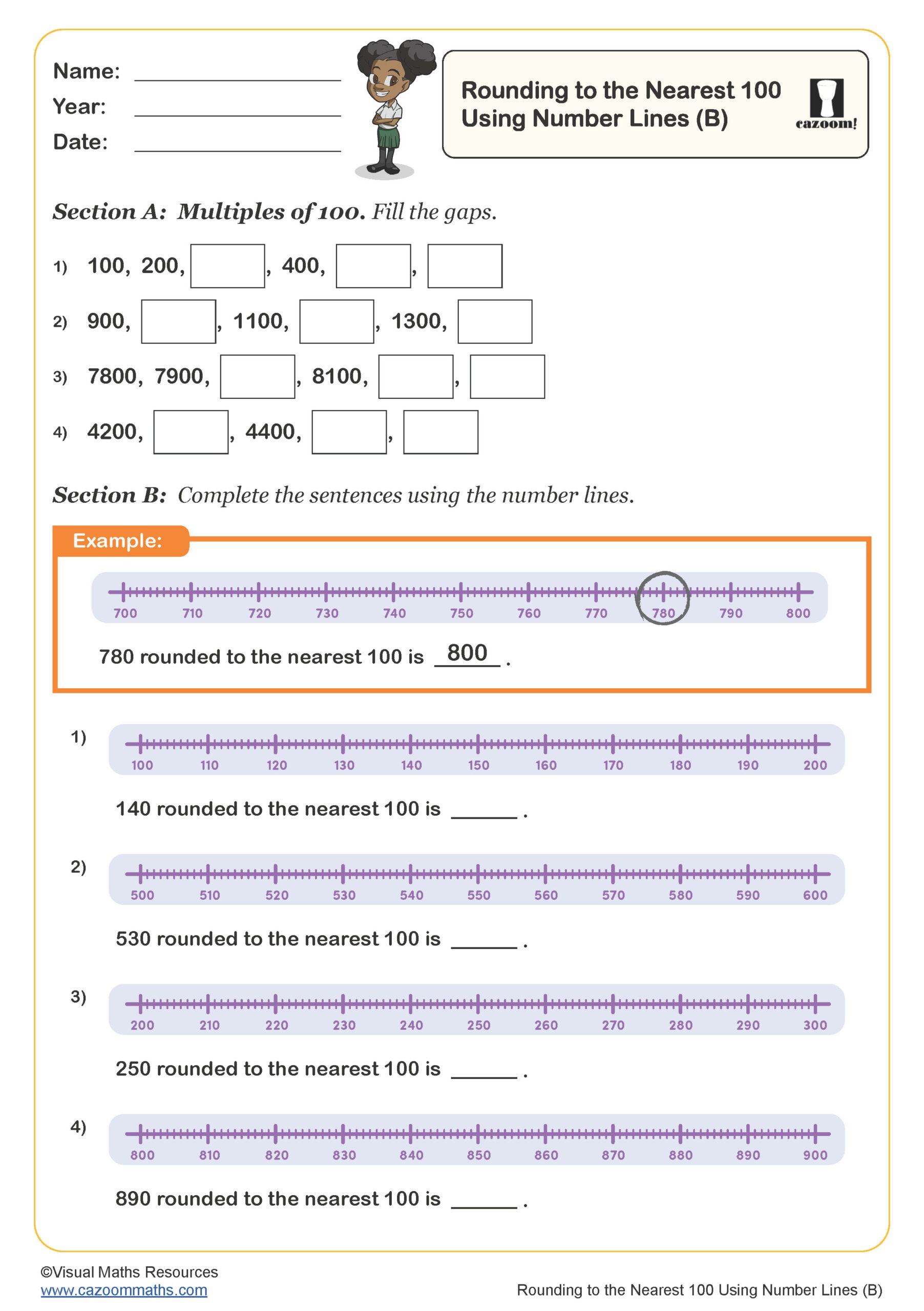
Rounding Numbers to the Nearest 100 Using Number Lines (C)
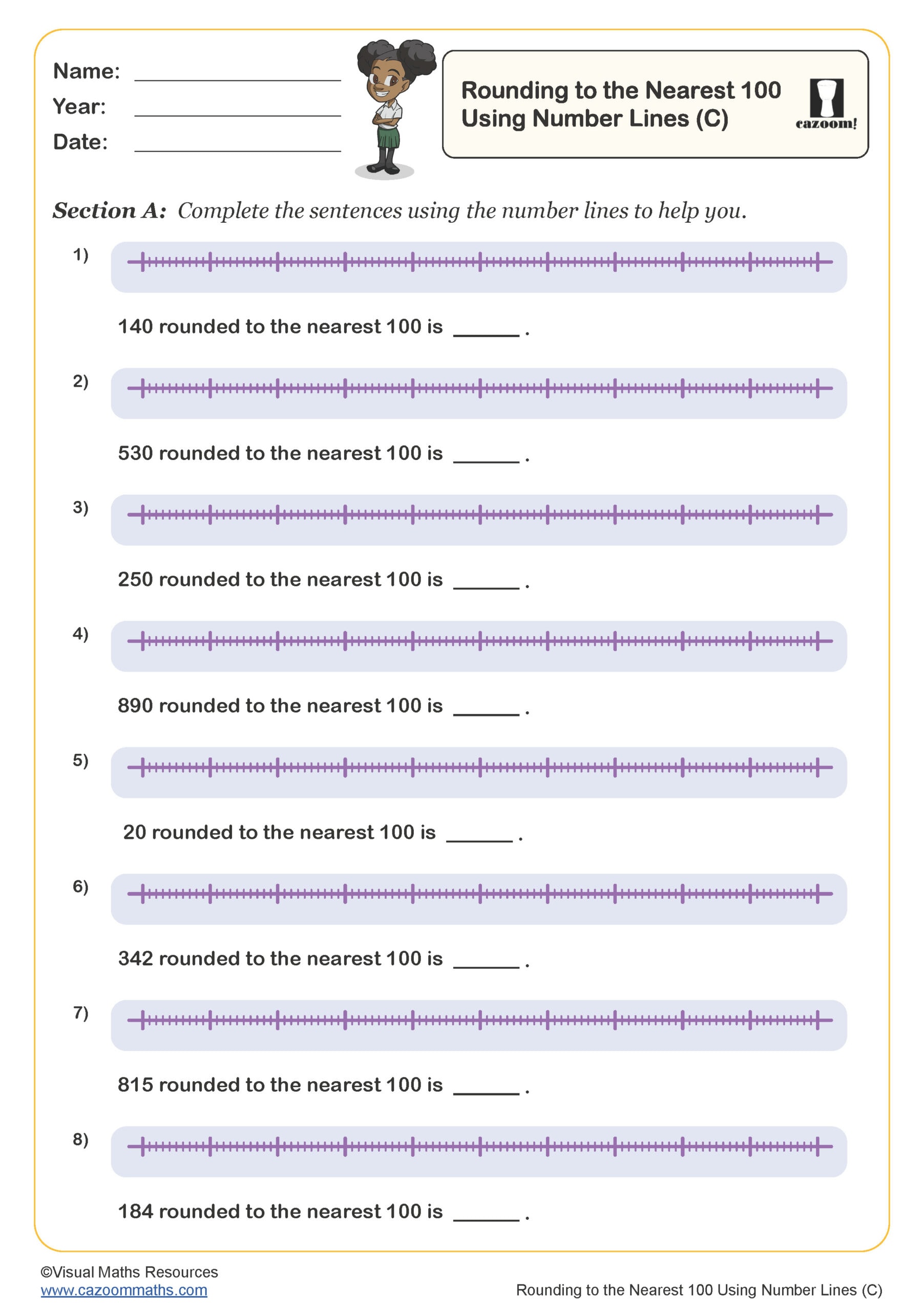
Rounding to the Nearest Multiple of 1,000
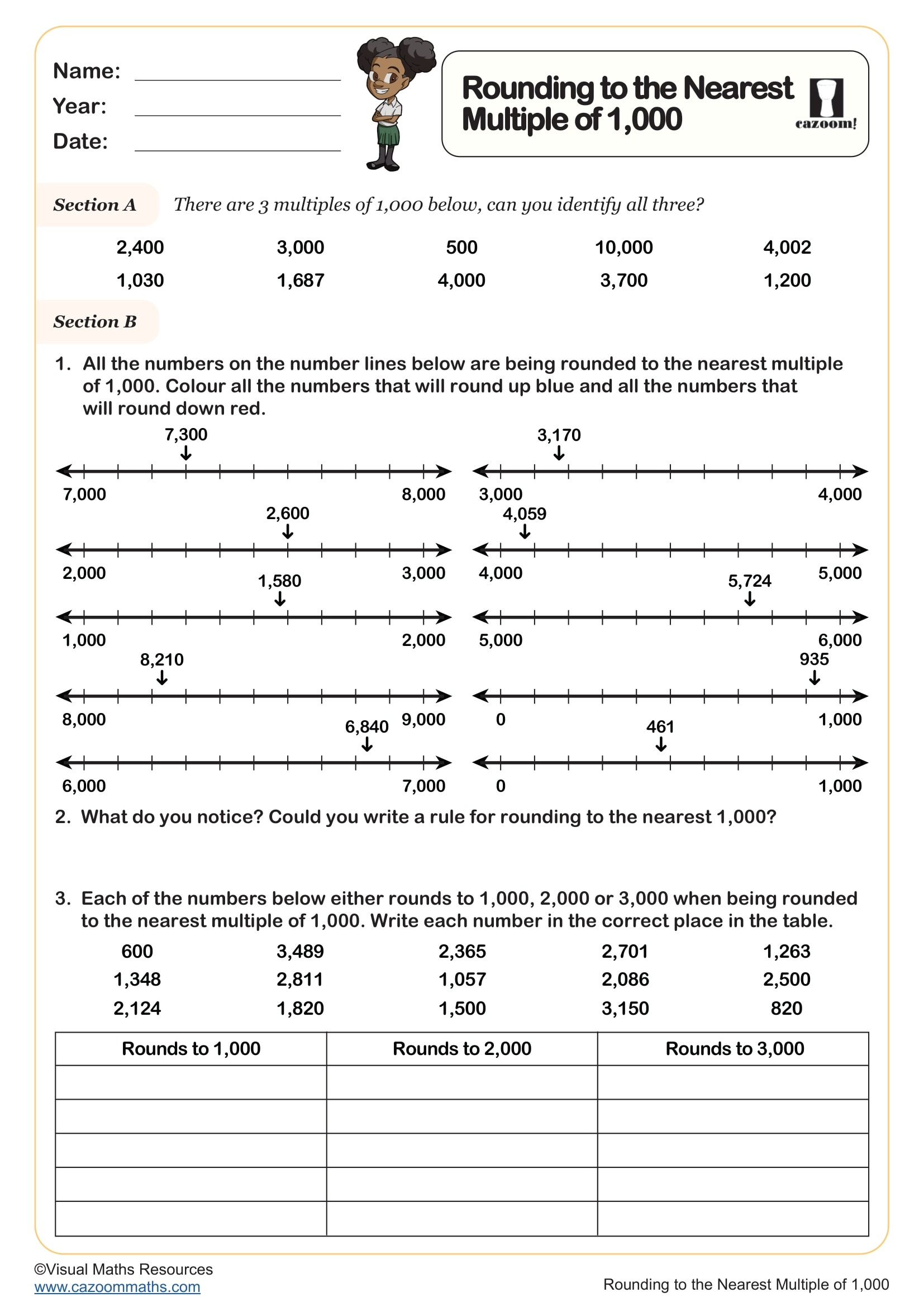
Rounding to Whole Numbers (A)
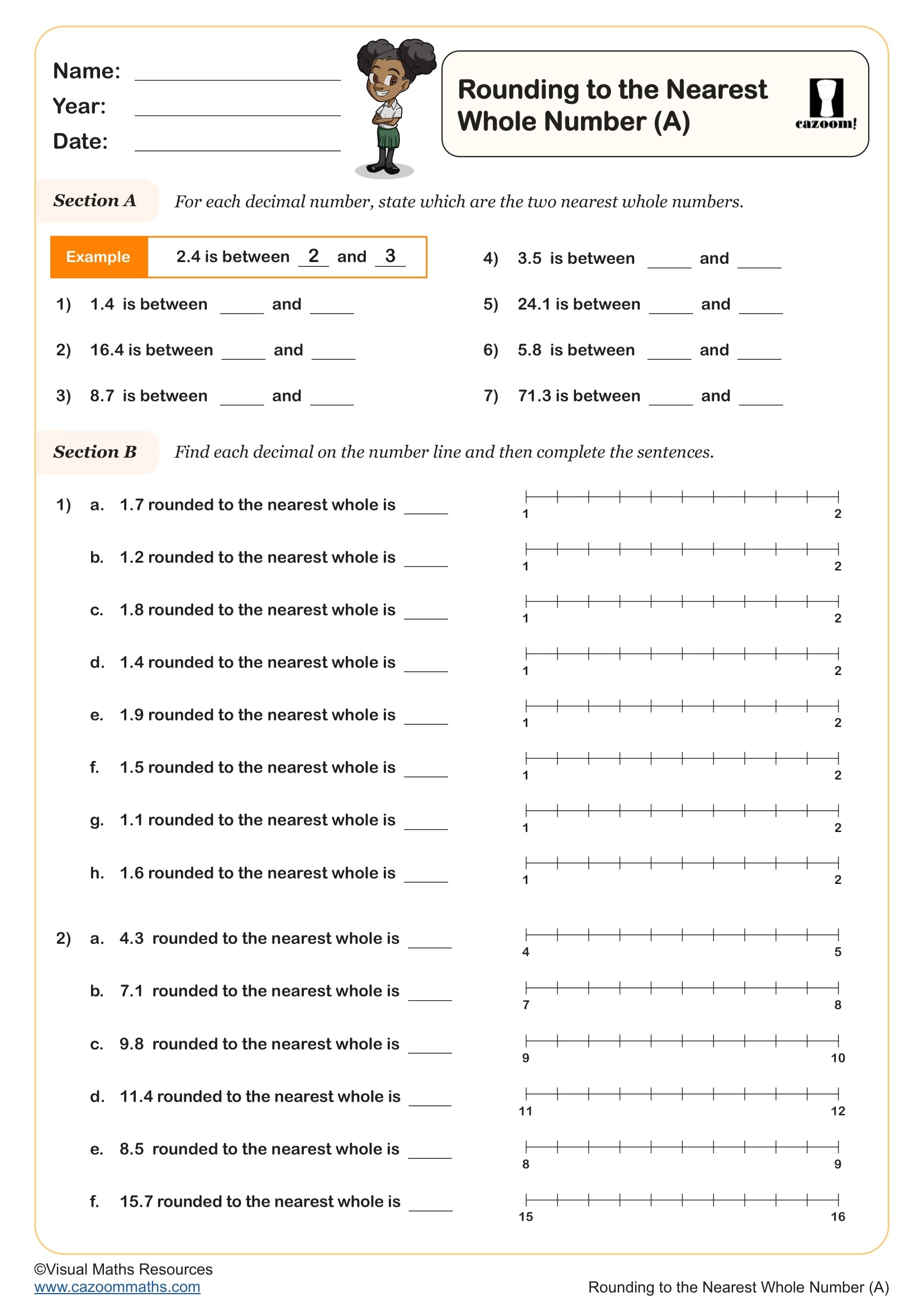
All worksheets are created by the team of experienced teachers at Cazoom Maths.
Fun Year 4 Place Value Worksheets That Build Confidence
As a teacher, you must have spent countless hours in Year 4 classrooms watching students struggle with abstract place value concepts, which is why these place value and value of a number worksheets focus heavily on visual learning. Each worksheet bridges the gap between concrete understanding and abstract thinking through carefully designed activities. All of Cazoom Maths' number resources are created in easy-to-use, printable PDF formats. Our detailed answer sheets don't just show the solution – they reveal the thinking process, helping students understand why their approach works.
What Makes Our Year 4 Place Value Worksheets Different?
What is Place Value?
Place value is simply the idea that where a digit sits in a number determines how much it's worth – so the '3' in 345 represents 300 (three hundreds), whilst the '3' in 35 only represents 30 (three tens). Think of it like house addresses: the same digit means completely different things depending on which "position" or "place" it occupies in the number.
With our custom-designed number worksheets, your students begin with concrete representations using base-ten blocks and hundred squares, then gradually move towards more abstract number work. The progression covers partitioning four-digit numbers, comparing values, and understanding number sequences – skills that students consistently find challenging. What's particularly popular is our "place value detective" activities, where students identify and correct common misconceptions.
Why Consistent Practice Makes All the Difference for Year 4 Mathematicians
KS2 students who regularly practice place value concepts show dramatically improved confidence in all areas of mathematics. These number and place value year 4 worksheets provide that essential repeated exposure without becoming tedious. The variety keeps students engaged while building automatic recall of key concepts.
• Improved mental arithmetic – students calculate more efficiently when they truly understand number structure
• Better problem-solving confidence – place value understanding underpins most mathematical reasoning
• Stronger foundation for fractions and decimals – concepts that rely heavily on place value knowledge
• Enhanced number sense – students develop an intuitive understanding of number relationships
• Increased exam performance – particularly in reasoning questions that require deep number understanding
Real-World Applications That Motivate Young Learners
Place value actually has brilliant real-world applications. We love showing Year 4s how place value appears in everyday contexts – from reading house numbers and postcodes to understanding money and measurements. It's actually quite satisfying when students suddenly realise that understanding thousands, hundreds, tens and units helps them make sense of everything from sports statistics to shopping receipts.
• Reading and writing addresses – understanding how postcodes and house numbers work
• Managing pocket money – calculating totals and working out change accurately
• Understanding sports scores – making sense of cricket runs, football attendance figures
• Shopping and budgeting – comparing prices and calculating savings
• Science measurements – reading scales, understanding data in graphs and charts
• Technology and gaming – understanding scores, levels, and digital displays